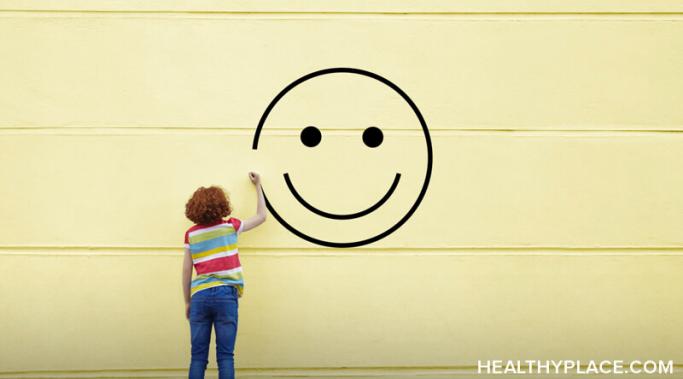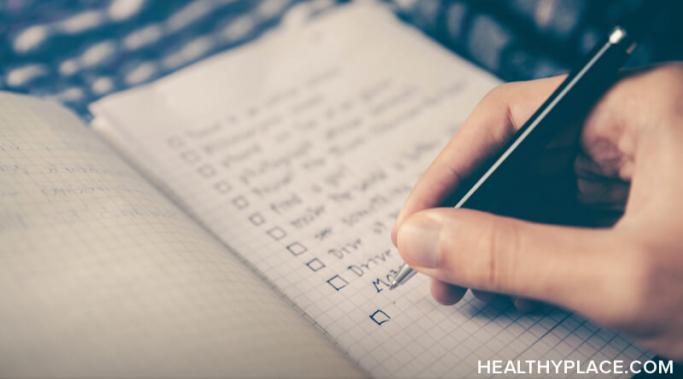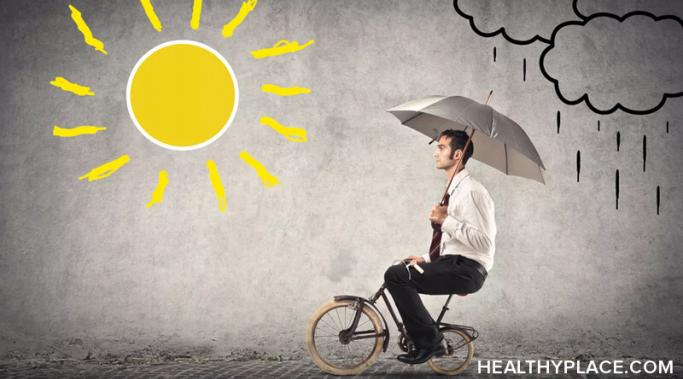My daughter is only three years old, but I already worry that she might experience some of the same mental health issues I did growing up. There are some signs I want to look for.
Self-Help - Recovering from Mental Illness
I fake normalcy because having a mental illness is isolating and makes me feel different. Facing the outside world can be difficult. Here are five coping methods (positive and negative) I noticed I do when I leave the house that help me fake normalcy.
"Feel the fear and do it anyway" is a popular motivational phrase, but its wisdom is often difficult to actually implement in your life, especially if you deal with anxiety. Fear and anxiety are huge, overwhelming emotions, and many of us struggle to even allow ourselves to feel them, let alone feel them and then continue functioning like a healthy person. Still, that doesn't mean it's impossible. It just means we may need some help to "feel the fear and do it anyway." These are three tips I've developed through years of living with anxiety.
I have recently quit drinking. Drinking has negatively impacted my life for the past few months and I decided to stop a couple weeks ago. I am hoping this will put me on a path to a healthier life both mentally and physically.
Let's face it -- getting through the day with a mental illness can sometimes feel like an uphill battle, so having good mental health habits is priority one. My biggest challenge is avoiding stress-induced mental illness symptoms. It helps to go day-by-day, step-by-step, and to remember my priorities. Here are a few everyday habits I have developed to keep my recovery on track.
I frequently struggle with my hot head, my anger, which feels a little embarrassing to admit. I'm a very anxious person -- something I address in a lot of my articles -- and my anxiety often manifests as anger. I try not to make my anger visible when I'm around others, but it's an all-consuming emotion that's hard to hide. I'm angry about wasting time and energy being so hot-headed, so I am searching for ways to ease my mind.
Emotional resilience is very important to a person's wellbeing. It is a way to describe how well you mentally bounce back from upsetting situations and events. Resilience can be crucial in mental illness recovery where stress can aggravate symptoms. Being able to better handle stress improves stability.
The bullet journal is one of the best planners for people living with a mental illness, and I'll tell you why. Organization can be an incredibly important part of mental health recovery, and one of the best organizational systems for those of us with mental illness is the bullet journal. Basically, a bullet journal is a planner you create yourself using a blank notebook. This system allows for all kinds of organizational techniques, from the most colorful creativity to the most bare-bones minimalism.
It's really okay to be lazy sometimes. Many of us with mental illness have been called lazy at one time or another due to the symptoms of our mental illness. When people don't understand our symptoms, they often try to shame us into simply not being mentally ill anymore by saying we're just being lazy or aren't trying hard enough. "Lazy" then transforms from a simple descriptive word to a powerful tool of shame. "Lazy" becomes the worst thing we could possibly be, and many of us avoid it at any cost. But the truth is, those of us with mental illness can be just as lazy as anybody else.
A few months ago I underwent eye muscle surgery to better align my eyes. This is a problem I have struggled with since birth, so it really gave my confidence a boost to look in the mirror and see straight eyes. The surgery was elective and something I really had to ask for.









